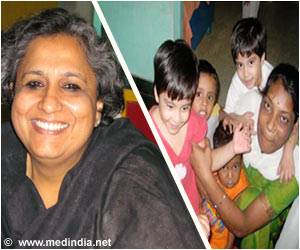Emerging out of closet as gay, lesbian or bisexual is probably good for your health, chiefly when parental support is involved.

Overall, three-quarters of lesbian, gay and bisexual adults in Massachusetts reported having come out to their parents, typically when they were about 25 years old, the study found.
The response to their coming out led to different health outcomes, according to the researchers. Gay and bisexual males whose parents did not support them, for example, had six to seven times the odds of serious depression and binge drinking, while lesbian and bisexual females had five times the odds of developing serious depression, and 11 times the odds of illicit drug use.
In the study, published in the Journal of Homosexuality, Rothman and colleagues surveyed 5,658 adults ages 18-64 years old in Massachusetts using a statewide surveillance system. They explored whether coming out—and the reaction that it received —was associated with better or worse adult health. The authors controlled for factors including age, race, education level and health insurance status, in order to focus as narrowly as possible on the association between coming out and adult health status.
"These results do not surprise me at all," said Nicole Sullivan, a 22-year-old student at Bunker Hill Community College who came out as bisexual when she was 19 years old. "I struggled with mental health and drug problems during my adolescence, and I know that some of it is because I didn't feel accepted at home. I am really grateful that I had cousins who supported me, and it's because of them that I was able to get healthy."
The authors found that the act of coming out (instead of remaining "closeted") was generally associated with better health for lesbian and bisexual women, but that this was not similarly true for gay and bisexual men.
Advertisement
Rothman added: "Given the high rates of suicide and self-harm among lesbian, gay and bisexual (LGB) youth--and the high costs of treating mental-health and substance-abuse disorders—it's critical that we understand what we can do to promote better health for LGB kids."
Advertisement
"The way that parents treat their LGB children when they come out is an important public health topic that has received too little attention to date," Rothman said. "Our message is that parents should take note: The way we treat our LGB children, even from before the time they disclose their sexual orientation status, may have a long-term, significant impact on their health and ability to handle life's challenges."
Besides Rothman, researchers on the study were: Mairead Sullivan, of Emory University; and Ulrike Boehmer, associate professor of community health sciences at BUSPH.
Source-Eurekalert










